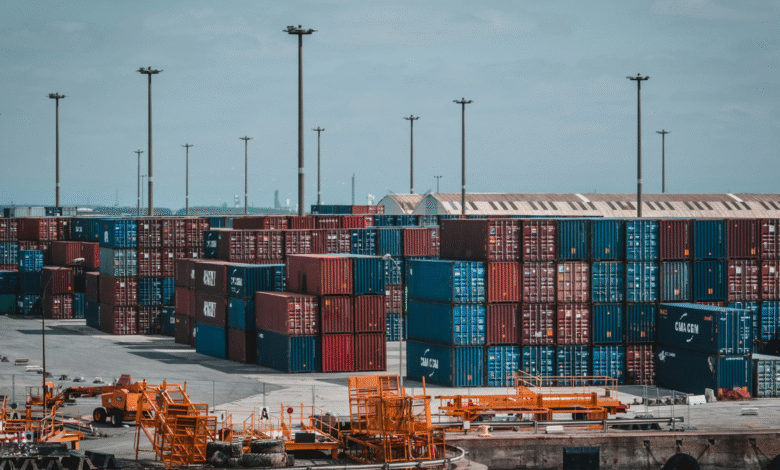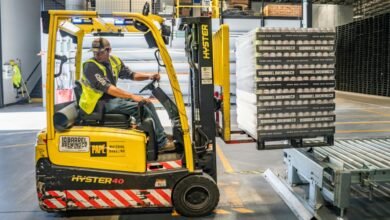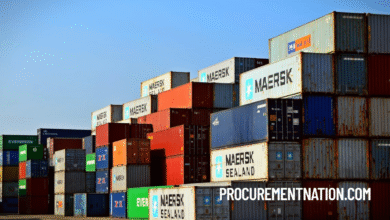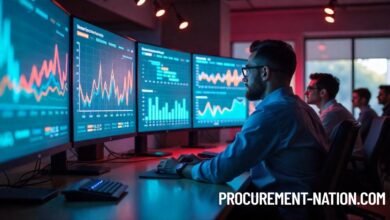The Role of Technology in Modern Supply Chains: Why Upskilling Is Essential

In an increasingly interconnected and digital-first world, supply chains have become more
complex, global, and vulnerable to disruptions. From geopolitical conflicts to pandemics and
climate events, modern supply chains face challenges that demand agility, visibility, and
innovation. Technology plays a critical role in addressing these challenges, transforming
traditional supply chain operations into intelligent, resilient ecosystems.
However, this transformation also brings a pressing need for professionals to stay ahead of the
curve. Enrolling in a Supply Chain Management course, particularly from leading institutions
like the IIM Supply Chain Management programs, is essential to build the expertise required to
thrive in this dynamic environment.
How Technology Is Transforming Modern Supply Chains
Modern supply chains are no longer just about moving goods from point A to B. They now
involve real-time data analytics, AI-driven forecasting, automation, and blockchain for
transparency. Here’s how technology is reshaping every aspect of the supply chain:
1. AI and Machine Learning for Forecasting and Planning
● AI and machine learning enable accurate demand forecasting by analyzing historical
sales, market trends, and external factors such as weather or economic indicators.
● Predictive analytics help businesses optimize inventory levels, reduce wastage, and
avoid stockouts.
● AI-driven planning tools support scenario analysis and risk modeling, improving strategic
decision-making.
2. Blockchain for Transparency and Traceability
● Blockchain technology ensures secure, tamper-proof records of transactions across the
supply chain.
● It enables real-time traceability of goods, from raw materials to end-user delivery.
● This is especially important in sectors like food, pharmaceuticals, and luxury goods
where authenticity and compliance are crucial.
Why Upskilling Is Needed:
Understanding blockchain architecture and its integration with existing systems is vital. Supply
chain professionals must be equipped with knowledge of smart contracts, distributed ledgers,
and digital traceability.
3. IoT and Real-Time Monitoring
● Internet of Things (IoT) devices enable real-time tracking of shipments, monitoring of
storage conditions, and predictive maintenance of logistics assets.
● Sensors and RFID tags provide critical data that improve visibility and responsiveness
across the value chain.
Why Upskilling Is Needed:
Professionals need to interpret IoT-generated data and make quick decisions. A
comprehensive Supply Chain Management course introduces these tools and how to use
them for maximum impact.
4. Cloud Computing and Integrated Platforms
● Cloud-based supply chain platforms allow seamless communication between suppliers,
manufacturers, distributors, and retailers.
● These platforms improve collaboration, reduce latency, and increase operational
efficiency.
Why Upskilling Is Needed:
Understanding cloud infrastructure and supply chain software like ERP, WMS (Warehouse
Management Systems), and TMS (Transportation Management Systems) is now a baseline
requirement for professionals in the field.
5. Automation and Robotics in Warehousing
● Automation technologies like robotic picking systems, automated guided vehicles
(AGVs), and drones streamline warehouse operations and reduce manual labor.
● These technologies ensure accuracy, speed, and safety in logistics.
Why Upskilling Is Needed:
Leadership in supply chain now demands knowledge of automated systems and how to
manage human-machine collaboration. Programs like the IIM Supply Chain Management
course include modules on automation strategy.
The Growing Importance of Supply Chain Data
Data is at the core of every technology revolutionizing supply chains. Leaders and managers
must know how to:
● Collect and clean data from various sources.
● Analyze data to derive insights and improve performance.
● Use dashboards and data visualization tools for decision-making.
Without a data-driven approach, technology investments in the supply chain often fall short of
their potential. That’s why advanced Supply Chain Management courses place a strong
emphasis on data literacy.
Key Topics Covered in a Supply Chain Management Course
Whether you're new to the field or a seasoned professional, a structured learning path is
essential. A typical high-quality course—especially from top institutions like IIM—covers:
● Supply Chain Strategy and Design
● Logistics and Distribution Management
● Supply Chain Analytics and Data Visualization
● Demand Forecasting and Inventory Planning
● Sustainable Supply Chain Practices
● Procurement and Supplier Relationship Management
● Digital Supply Chains and Industry 4.0
● Global Trade and Risk Management
These modules ensure that professionals not only understand the latest technology but also
know how to apply it effectively.
Who Should Enroll in a Supply Chain Management Course?
● Mid-level managers looking to take on more strategic roles.
● Engineers and operations professionals transitioning into supply chain management.
● Entrepreneurs and business owners aiming to optimize their logistics and
procurement.
● Fresh graduates or early-career professionals aspiring to build a career in this in-
demand field.
With increasing global disruptions and rising demand for supply chain resilience, this is an
opportune time to invest in upskilling.
Conclusion
Technology is no longer a choice but a necessity in modern supply chain management. From
predictive analytics and blockchain to automation and IoT, every facet of the supply chain is
being transformed by digital innovation.
But technology is only as powerful as the people who know how to use it. Upskilling through a
comprehensive Supply Chain Management course, particularly from a leading institution like
the IIM Supply Chain Management program, empowers professionals to lead this
transformation confidently.
By equipping yourself with the right tools, knowledge, and strategic mindset, you can not only
enhance your career but also help your organization build a smarter, more resilient, and future-
ready supply chain.




